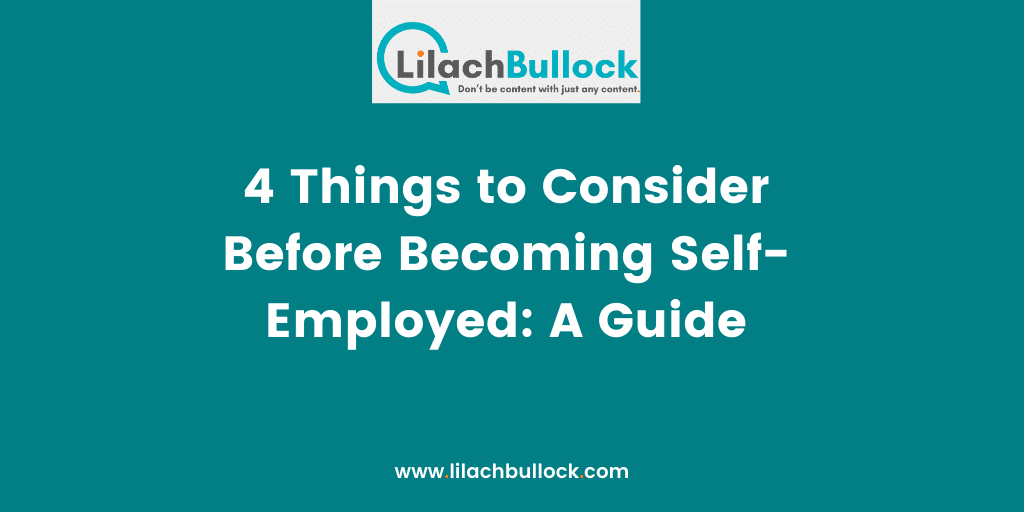Follow Lilach

4 Things to Consider Before Becoming Self-Employed: A Guide
The number of people opting for self-employment is on the rise, with more and more workers realising the opportunities that self-employment provides, from flexibility to organise your own time to the freedom to move and travel where and when you want. However, there are some aspects which you must consider before becoming self-employed.
Here Are 4 Things to Consider Before Becoming Self-Employed:
-
Taking out insurance cover
Insurance can be crucial for the self-employed to cover themselves if their business goes wrong, and in some cases, it is required by law. For instance, if you are inviting clients to meet at your house or place of work, then you may wish to take out public liability insurance. However, companies like Hiscox offer liability cover alongside professional indemnity insurance as part of their freelance insurance policy. Both covers are hugely important and should be included in any deals on insurance for self-employed individuals. Professional Indemnity ensures that if there are any claims made against you by the client, you will be able to claim the costs of settling these claims and solving problems.
Hiscox provides customised cover for small businesses and self-employed people. They provide a full list of insurance cover for freelancing individuals as well as calculating the best insurance for your business sector.
-
Registering your self-employment
To ensure that you avoid large fines, you should register your self-employment as soon as possible on the HMRC UK Government website once you have made over £1000. All people that are self-employed should register before the 5th October of their second tax year. Therefore, if you decide to go self-employed before April, then you will need to register by October this year. This will give you a number of benefits such as tax-free childcare and the ability to file for tax-free business expenses whilst indicating that you will be filling out a self-assessment tax return in April.
-
Recording expenditure and earnings
If you do not track your earnings effectively, this may cause problems when filling out your tax return in April. When self-employed, you should always keep a detailed record of your weekly earnings and any expenditure you may incur. The best way to do this is by using a simple Excel spreadsheet that covers your invoices and costs, allowing you to claim these when filing for your tax return.
-
Creating a business bank account
Creating a business bank account helps to separate your earnings from the rest of your money, such as your savings. This distinction will not only help you to understand and evaluate your earnings directly, but it is also important when it comes to your business records and tax. For instance, if you are paying off a student loan, student finance will ask to see the last 3 months of your bank statements if you are self-employed. This is made comparably easier if these are in a separate account.
Whilst self-employment may seem easy to begin, there are some crucial aspects of your business that you will have to consider before making the step into self-employment. However, once you have set these up correctly, you will be able to enjoy the wide variety of benefits such as more time and freedom.

Follow Lilach















